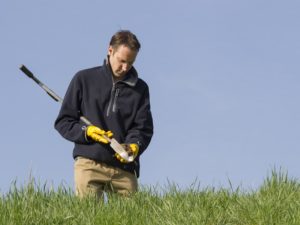The top 20% of successful farmers have one thing in common: The ability to make the right decision at the right time.
It might appear that the most successful businesses are more complex in nature, but it simply boils down to the skills involved with decision making, according to rural accountant Old Mill. “It can be easy to forget the importance of decision-making as it is something we all do every day, but making the correct decisions for a business cannot be undervalued and more emphasis needs to be placed on the value of this skill in farming businesses,” explains Catherine Vickery, associate director at Old Mill.
“But it’s equally important to acknowledge that faulty decision-making can be more damaging to a farm business than faulty equipment, as a wrong decision can influence the success of a business for many years,” she warns.
It’s especially vital to hone the decision-making skills with the pressures and uncertainties over changing markets, the roll-out of ELMs and the Agriculture Bill – as well as the fall-out from Covid19.
Fortunately, good decision-making is a skill that can be learned, and formal meetings are a perfect place to start. “The problem is that less than 1% of family run farming businesses have regular formal meetings to guide tactical and strategic decisions,” explains Ms Vickery. “Not having a serious sit-down discussion to share ideas and flesh out plans is a real prohibiting factor in the growth and success of a business.”
It’s important to identify the key values of the business, and address why you and other members of the are team are farming, she adds. “Profitability is clearly an important element, but there are many other reasons that drive people, such as job satisfaction, environmental improvements, welfare standards and sustainability. How these pertain to the individual should be factored into the decision-making process.”
Having the tools to come to the right decision at the right time can set a business up to flourish. Although it might feel an intangible process, there are some easy steps to break down decision making and make it more accessible:
- Identify the critical variables
- Listen to experts but don’t follow them blindly
- Create formal group / family meetings
- Use your professionals to facilitate meetings
- Act quickly and decisively
- Don’t over-analyse
- Sometimes doing nothing is the right thing
- Be prepared
- Don’t focus on bad decisions
It is also advisable to make the most of technology to give an accurate analysis of business performance, from productivity to financial factors. “Benchmarking and peer groups provide the means to assess your performance against similar business ventures, providing a more accurate measure,” says Ms Vickery.
Though it might take time to collect information on which to properly formulate decisions in a formal setting, the time spent on these aspects is never wasted, she adds. To help farmers develop this skill set, Old Mill has compiled both a written and video guide to get started with, which can be found on its website. “Taking advantage of the resources available is a good first step. But if you are unsure where to start, draft in advisers and set up some clear guidelines to move the business forward. Long-term sustainability should be the goal and good decision-making is key to this.”
- https://om.uk/insight/five-top-tips-to-help-you-make-the-right-decision-for-your-farming-business/
- For more information contact Catherine Vickery on 07807 836664.





